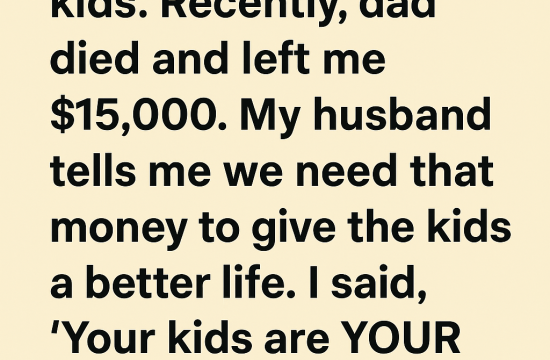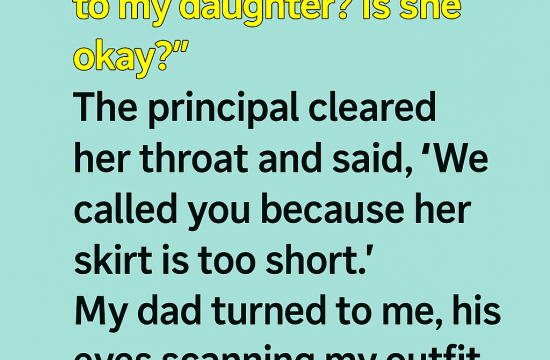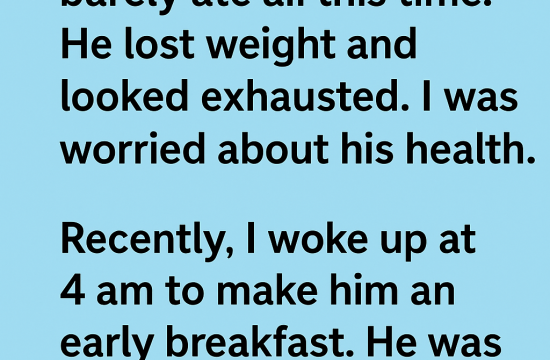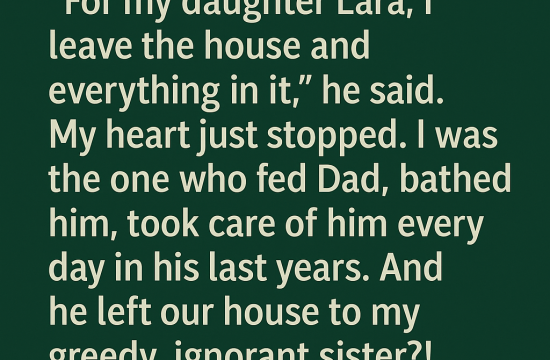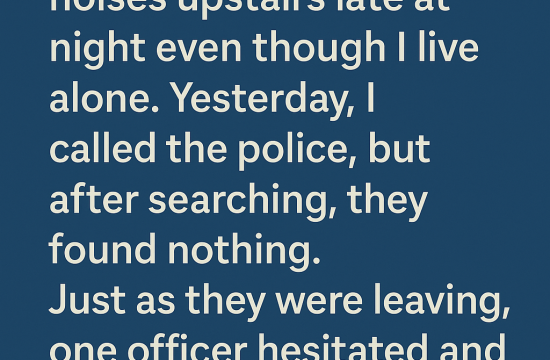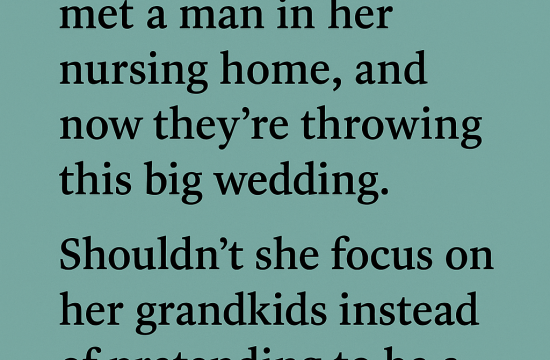I had a fight with my boyfriend, and he made me leave our home. I was crying at work, still clutching the backpack that now held everything I owned.
My boss, Naveen, saw me breaking down and quietly offered, “You can stay at our place. My wife’s there too. I’ll explain.”
He did. She wasn’t happy.
They muttered in the kitchen, voices sharp but hushed. Then his wife, Lira, came to me, her eyes steady as steel.
“You can stay,” she said. “But don’t mistake kindness for comfort.”
I didn’t know what that meant. And I was too exhausted to ask.
That night, I lay in their mismatched guest room sheets, staring at the flickering lamp, telling myself this was temporary. A few days. Just until I figured something out.
But the days turned into weeks.
Lira gave me chores without smiles. “You work. You help,” she said, thrusting a dish towel into my hand. I scrubbed floors, folded laundry, vacuumed while they watched TV. I noticed her watching me too—not with warmth, but with wariness. Like I was a stray dog that might snap.
After a week, I tried to leave. “I’ll crash at a friend’s place in Oxnard,” I said.
Lira blocked the door. “No. You’re not ready. You’ve got ghosts behind your eyes. Heal before you run.”
I stayed.
By the third week, I overheard them on the patio. Words slipped through the night air—“too long,” “emotional mess,” “not a shelter.”
The shame burned me. I asked Naveen if I should go. He sighed. “You’re fine. She’s just… cautious. She’s seen doors open too wide before.”
I pulled back. Said thank you more often. Cooked dinner once. Lira barely touched the stew, but muttered, “At least you know salt.”
That was the closest thing to approval I had.
Then I got sick. Fever, chills, shaking so hard I couldn’t stand. I expected to be kicked out. Instead, Lira came with a bucket and a cool cloth.
“You have people?” she asked.
I shook my head.
“Me neither,” she said. “That’s why I married a good one.”
She wiped my forehead, humming something old and soft. I fell asleep to the sound.
After that, something shifted. Tea in the mornings. Fewer sharp words. Small, quiet mercies.
Months passed. I saved money, got promoted, started planning for my own place.
One evening, Lira handed me an envelope. Inside was a check for $600.
“It’s not my money,” she said. “Naveen gave you a bonus. I told him how much.”
“Why?” I asked.
“Because sometimes, we all need one person to believe we can stand.”
I cried again that night—but this time from gratitude.
Eventually, I found a small studio in Alhambra. When I moved, Lira gave me a quilt with a cigarette burn in the corner. “Not beautiful. But it’s warm.”
I hugged her. She stiffened, then hugged me back.
A year later, Naveen called me. Lira had suffered a stroke.
I sat by her hospital bed every day. One night, as I adjusted her blanket, she grabbed my wrist. Her lips shaped two words: I knew.
“I did too,” I whispered.
When she passed, the funeral was full of strangers—women and men of all ages, each with a story about how “Mrs. Lira” had quietly helped them. A neighbor escaping abuse. A niece with nowhere to go. A girl who lost her family in a fire.
She hadn’t just taken me in. She had been doing it for decades.
Later, Naveen handed me her old journal, wrapped in a kitchen towel. The first page read:
“Today Naveen brought home a girl who lost everything. I’m afraid to care.”
Entry after entry told the same story: her fear of opening her heart, and her stubborn choice to do it anyway.
Now that journal sits on my shelf—right beside my own.
Because I do the same.
Not much. Just one person at a time. A coworker who lost her job. A cousin with two kids. I folded blankets. I made rice. I repeated Lira’s words:
“You can stay. But don’t mistake kindness for comfort.”
And I understood, at last, what she meant.
Helping isn’t softness. It’s strength.
And one strong person can change everything.
So if you ever find yourself on someone’s couch, wondering if you’re a burden, remember this:
It’s okay to need help.
It’s not okay to waste it.




